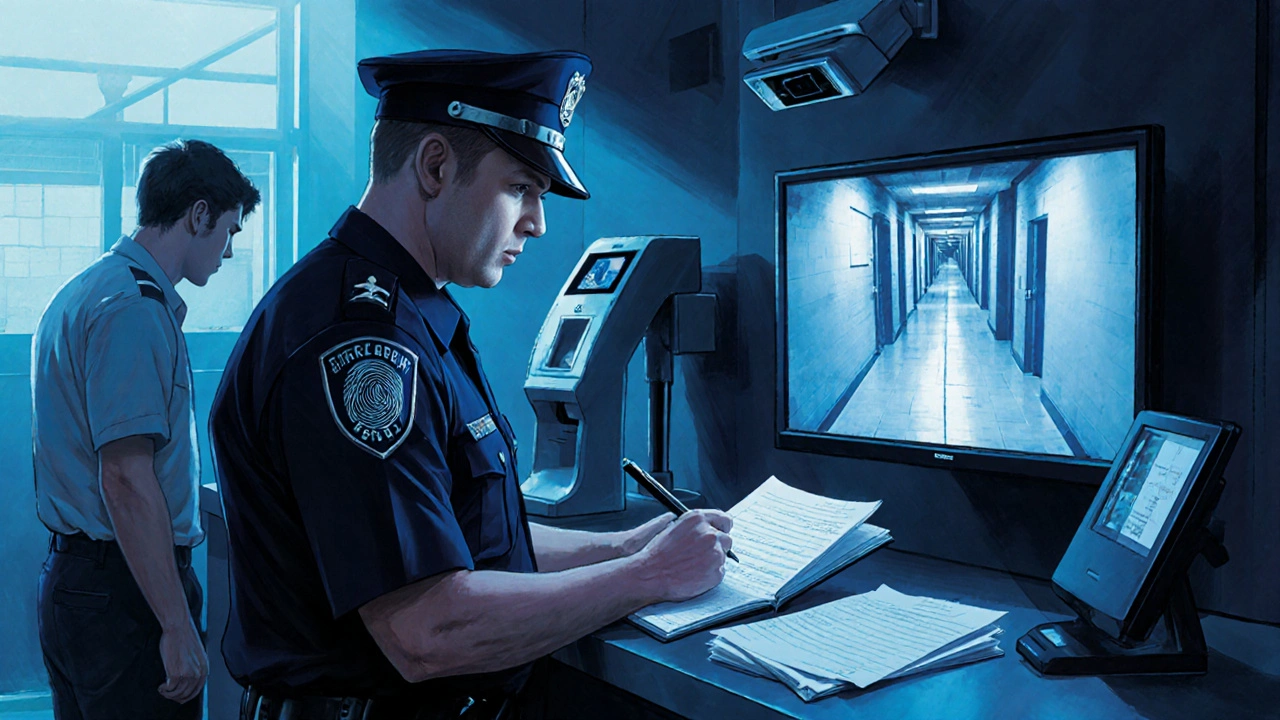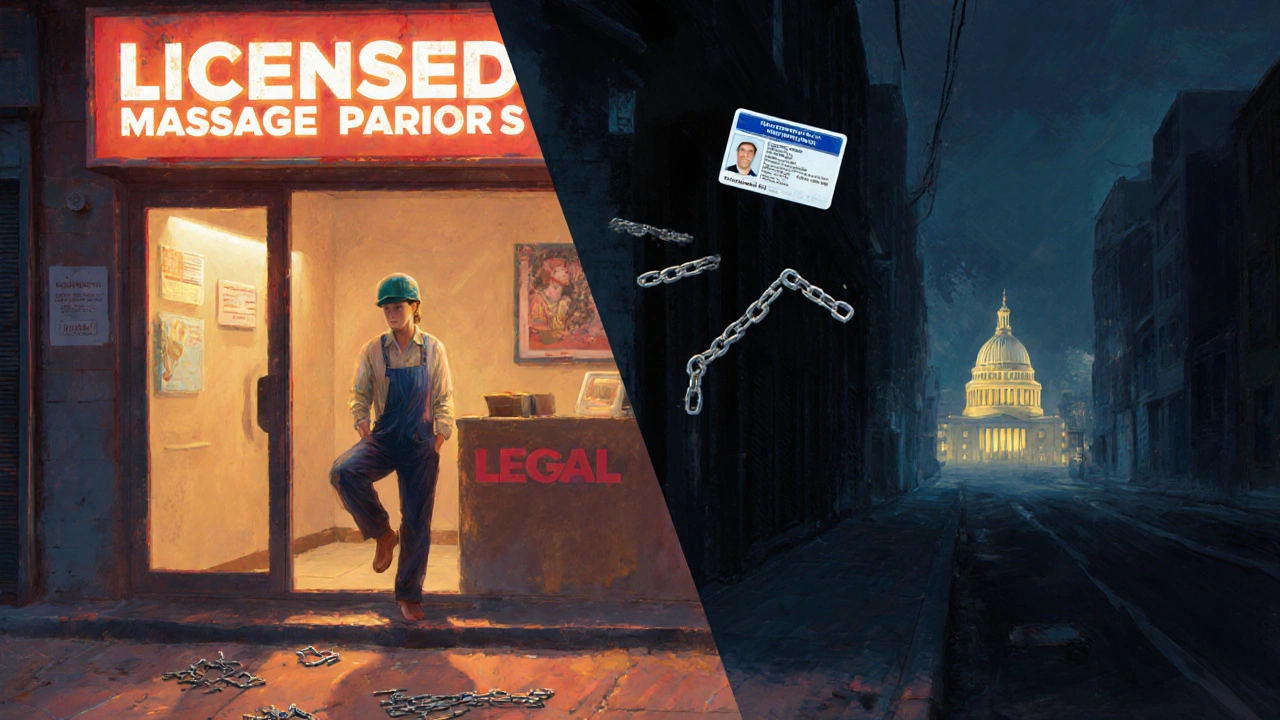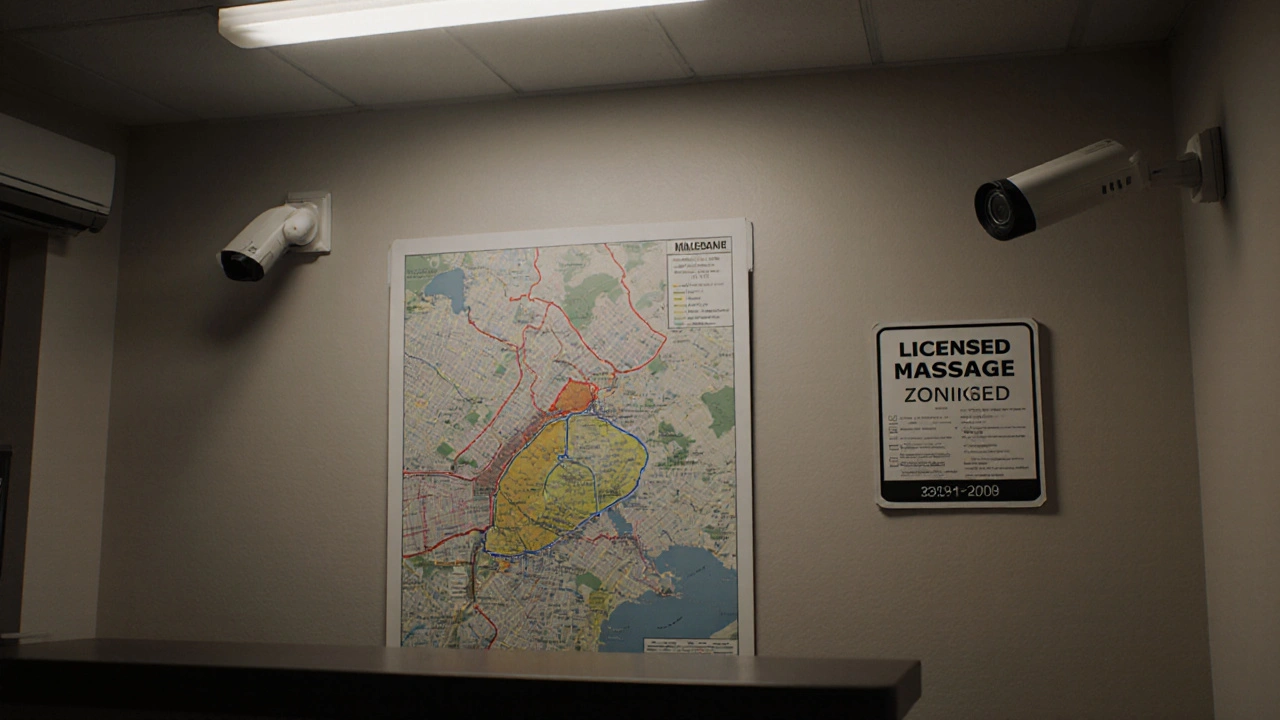Many people assume that if a massage parlor looks clean, has a sign in the window, and takes cash, it’s just a spa. But in cities across the U.S., Canada, Australia, and Europe, the line between a legitimate massage business and an adult establishment is tightly controlled by local laws-often with serious consequences for operators and clients alike. These rules aren’t about morality; they’re about zoning, licensing, and public safety. And if you’re running, working in, or even visiting one of these places, you need to know exactly what’s legal-and what could land you in court.
What Counts as an Adult Business?
There’s no universal definition. In Seattle, a business is classified as an adult establishment if it offers services where employees expose private parts during a massage. In Los Angeles, it’s any place where more than 50% of the revenue comes from sexual services, even if those services aren’t advertised. In Perth, Western Australia, the Massage Parlour Licensing Act 2023 defines any business offering intimate bodywork as an adult business if it’s located within 500 meters of a school, church, or residential zone.
Most cities don’t ban these businesses outright. Instead, they regulate them like a factory or a liquor store: where they can operate, who can work there, and how they must be monitored. In New York City, massage parlors must register with the Department of Health and submit employee fingerprints. In Toronto, staff must complete a criminal background check every two years. In Melbourne, the council requires all massage businesses to install CCTV in public areas-but not in treatment rooms.
Why Zoning Laws Matter
It’s not enough to have a license. Where you open your business can make the difference between staying open and being shut down overnight.
Most municipalities enforce buffer zones. In Chicago, no adult business can be within 1,000 feet of a school, playground, or public library. In Sydney, the buffer is 300 meters from any residential property. In Phoenix, the rules are stricter: no massage parlor can be within 1,500 feet of another adult business. That means if you’re opening a new place, you can’t just pick any storefront-you have to check the city’s zoning map first.
These rules aren’t arbitrary. They’re based on decades of studies showing that clusters of adult businesses correlate with increased noise complaints, property value drops, and higher rates of petty crime. But they also mean that operators in low-income neighborhoods often get pushed into the few zones allowed-while wealthier areas remain free of these businesses.
Licensing and Background Checks
Getting a license sounds simple until you see the paperwork. In most places, you need:
- A business license from the city
- An adult business permit (separate from your regular business license)
- Proof of liability insurance
- Employee background checks (fingerprint-based, not just a self-declaration)
- Proof of training in hygiene and client safety
Some cities require you to attend a public hearing before your permit is approved. In Portland, Oregon, applicants must present their business plan to the City Council and answer questions from residents. In Vancouver, you must post a notice in your window for 30 days before opening, letting neighbors know what’s coming.
Background checks aren’t just for owners. Every employee-even cleaners and receptionists-must pass a criminal record review. In San Francisco, if you’ve ever been convicted of prostitution, human trafficking, or assault, you’re permanently barred from working in a licensed massage business. Even a misdemeanor from ten years ago can block your application.

What’s Allowed During a Massage?
This is where things get tricky. In many places, the law doesn’t ban sexual activity-it bans explicit sexual services. But what counts as explicit?
In New Zealand, massage therapists are legally allowed to touch intimate areas if it’s part of a therapeutic treatment and the client consents in writing. In the UK, the law says any massage that involves genital contact is illegal unless performed by a licensed medical professional. In Texas, the state defines a ‘sexual act’ as any contact with the genitals, anus, or female breast for the purpose of sexual arousal-and if that’s the intent, it’s prostitution, even if no money changes hands.
Most municipalities require that all services be documented. In Boston, massage therapists must log each client’s name, service type, duration, and payment method. In Tokyo, businesses must keep a logbook for three years and allow police to inspect it without a warrant.
How Enforcement Works
Police don’t usually raid massage parlors for no reason. Most crackdowns start with complaints: neighbors tired of late-night traffic, residents worried about underage workers, or former employees reporting abuse.
In Atlanta, the police use ‘undercover client’ operations. An officer poses as a customer, asks for a ‘happy ending,’ and if the worker agrees, the business is shut down and fined up to $10,000. In Stockholm, inspectors visit unannounced, checking for hidden rooms, surveillance equipment, or cash-only transactions without receipts.
Penalties vary. In Las Vegas, a first offense can mean a $5,000 fine and 90 days of suspended license. A second offense? Permanent revocation. In Melbourne, the owner can be jailed for up to two years if they knowingly employ someone under 18-even if the worker lied about their age.
What This Means for Sex Workers
These regulations don’t just target businesses-they shape the lives of sex workers. Many workers avoid licensed parlors entirely because the background checks, logbooks, and police inspections make them targets. Others work illegally, risking arrest, deportation, or violence.
Studies from the Urban Justice Center show that in cities with strict licensing, sex workers are 37% more likely to work alone, in unsafe locations, or with clients they don’t screen. Why? Because licensed parlors often require workers to be employees, not independent contractors. That means no flexibility, no control over clients, and sometimes no pay if the business is raided.
Some cities are changing. In Vancouver, the city council approved a pilot program in 2024 that allows sex workers to register as independent contractors without a business license-so long as they complete a safety training course and carry a government-issued ID card. It’s not legalization, but it’s a step toward recognizing that regulation without protection just pushes people underground.

How to Stay Legal
If you’re running a massage business-or thinking about it-here’s what you need to do:
- Check your city’s zoning map for adult business restrictions. Most city websites have interactive maps.
- Contact the local licensing office. Ask for the exact list of requirements for an adult business permit.
- Get all employees screened. Don’t assume a background check from another state or country counts.
- Install visible signage that lists your license number and business hours.
- Keep clear records: client names, services, times, payments. If you’re asked for them, you must produce them.
- Train staff on what’s legally allowed. A simple phrase like ‘I can’t do that’ is better than a risky ‘I’ll see what I can do.’
Don’t rely on word-of-mouth advice from other business owners. Laws change. In 2023, Denver updated its rules to include AI-powered facial recognition at entrances to track repeat customers. In 2024, Sydney banned the use of apps like WhatsApp or Telegram for client bookings-any digital communication must go through a city-approved platform.
What’s Next?
The trend is clear: cities are moving away from outright bans and toward tighter control. But control without support doesn’t make sex work safer-it just makes it harder to operate legally.
Some cities are experimenting with decriminalization models. In Portugal, all sex work is legal, but brothels are still banned. Workers can operate alone, register with the government, and access healthcare and legal aid. In Germany, sex workers pay taxes and can unionize. In Australia, the Northern Territory decriminalized sex work in 2022, and since then, police reports of violence against workers dropped by 42%.
But most places still treat these businesses like public nuisances. Until the law recognizes that sex workers are people-not problems-regulations will keep pushing them into the shadows.
Can I legally offer a ‘happy ending’ in a licensed massage parlor?
No. In nearly all jurisdictions, offering or receiving sexual services-even if called a ‘happy ending’-is considered prostitution and is illegal. Licensed massage businesses are required to only provide therapeutic massage. If an employee offers sexual services, the business can lose its license, face fines, and be subject to criminal charges. Even if the client initiates the request, the provider can still be prosecuted.
Do I need a license to run a home-based massage business?
Yes-if you’re charging for services and the work involves intimate body contact, most cities classify it as an adult business. Home-based operations are often explicitly banned in zoning codes. Even if you’re not advertising, if a client comes to your house and you’re paid, you’re operating a business. Many cities require you to apply for a home occupation permit and prove you’re not violating residential zoning rules. Violations can lead to fines, eviction, or criminal charges.
What happens if I don’t get a license but still operate?
You’re operating illegally. Penalties vary by city but typically include fines between $1,000 and $10,000, forced closure, seizure of equipment, and criminal charges. In some places, like Los Angeles, the business owner can be charged with a misdemeanor or even a felony if minors are involved or if there’s evidence of trafficking. Insurance won’t cover you, and you can’t sue if a client is injured. The risks far outweigh any short-term profit.
Can police enter my massage business without a warrant?
In many jurisdictions, yes. Because adult businesses are heavily regulated, courts have ruled that they have a reduced expectation of privacy. In places like New York and Toronto, inspectors can enter during business hours without a warrant to check licenses, logs, and CCTV compliance. Police can also enter if they have reasonable suspicion of illegal activity-like hearing a client request a sexual service. You cannot refuse entry if they’re acting under legal authority.
Are there any cities where sex work is fully legal?
Yes-but not as ‘massage parlors.’ In New Zealand, sex work is decriminalized, meaning workers can operate legally in homes, brothels, or on the street, as long as they’re not coerced. In Germany, sex work is legal and regulated under labor laws. In the Netherlands, brothels are licensed and taxed. But in the U.S., Canada, and most of Australia, sex work remains illegal, even if massage businesses are licensed. Legal status doesn’t mean you can open a spa and offer sexual services-you still need separate, specific legal frameworks.
Final Thoughts
Regulating massage and adult businesses isn’t about stopping sex work-it’s about controlling where, how, and by whom it happens. The laws are complex, inconsistent, and often outdated. But ignoring them doesn’t make you safer. It just makes you vulnerable.
If you’re involved in this industry, whether as a worker, owner, or client, your best move is to know the rules in your city. Don’t guess. Don’t rely on what someone told you. Go to your city’s official website. Call the licensing office. Ask for the current zoning code. Keep a copy of your permit. Document everything.
Because in this world, knowledge isn’t just power-it’s protection.
